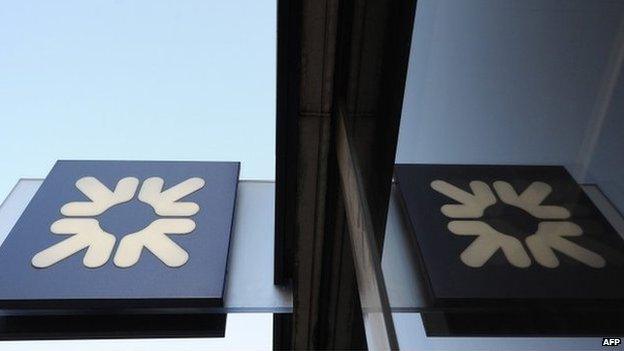RBS struggles against never-ending fines
- Published
- comments

The Royal Bank of Scotland is in the process of looking for a new chairman. Whoever it is will need a strong stomach.
Thursday's £56m fine from the Financial Conduct Authority and the Bank of England over the spectacular 2012 computer blow-up is the latest in a series of punishments for failure and misconduct stretching back years.
The bank has paid out billions of pounds in fines and compensation payments for the mis-selling of payment protection insurance, the manipulation of the inter-bank lending rate, the mis-selling of interest rate products to small businesses and the manipulation of the foreign exchange market.
Looking ahead, there are still large hurdles to clamber over. RBS is facing fines over its involvement in American mortgage products which were at the heart of the US financial crisis.
There are also likely to be more fines connected to forex problems for a number of banks, including RBS. The US Department of Justice is still to adjudicate on the matter, probably in the New Year.
A banking chief executive from another bank told me that if we thought the billions of pounds in foreign exchange fines we saw last week were large, just wait until we see what the DoJ decides to do.
"It will put last week into the shade," I was told.
Long tail of failure
Beyond forex, RBS is also facing legal action over its attempts to raise £12bn of capital to save itself during the 2008 financial crisis.
If all those issues are dealt with before the end of 2015, many within the bank will be surprised. The long tail of failure and misconduct is now one of the most serious facing the bank's reputation.
Ross McEwan, the chief executive of RBS, has said that the culture is changing and that bad behaviour is simply unacceptable.
But as the computer failure shows, saying something at the top of organisation does not necessarily translate into action at the front line.
The FCA said that the IT problems revealed "failures at many levels within the RBS Group to identify and manage risks".
Decades in underinvestment in "dull" technology led to the mess of 2012. Mr McEwan knows that banking is an essential service, dealing at its most basic in looking after people's money.
It failed in that duty.